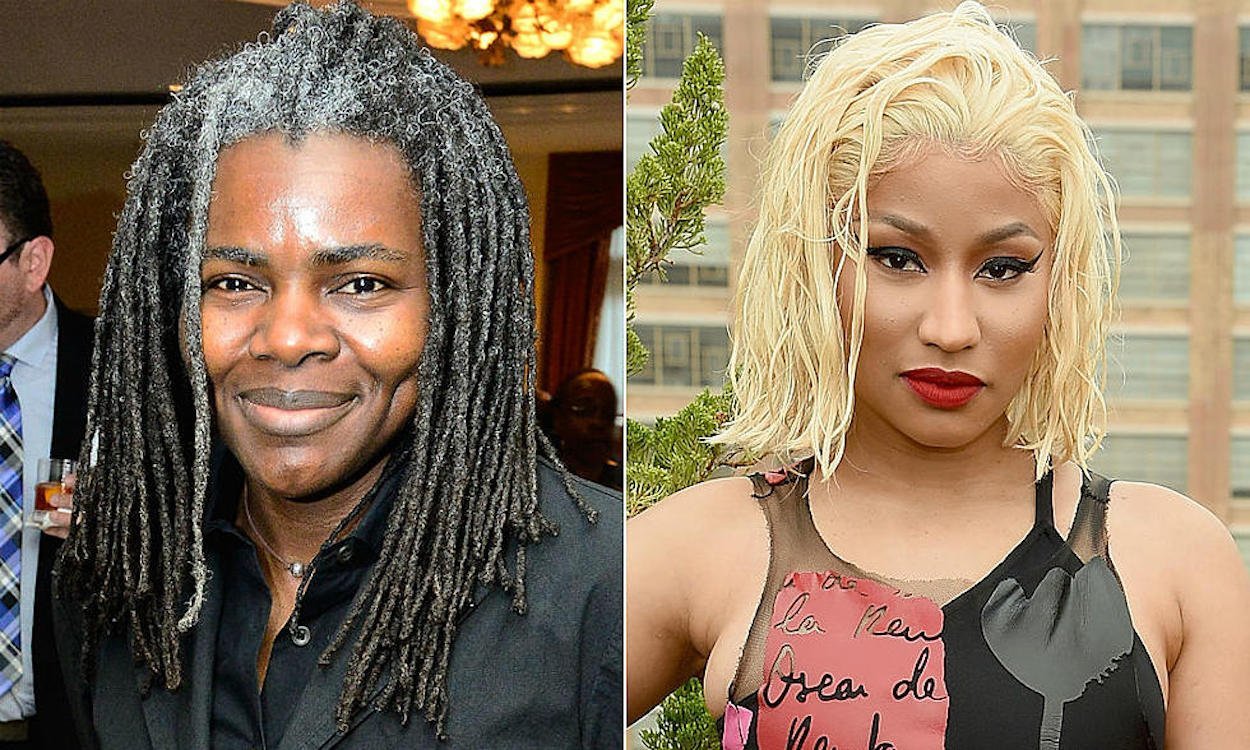Nicki Minaj and Tracy Chapman have reached a 6-figure settlement in their ongoing copyright lawsuit.
Nicki Minaj and Tracy Chapman have reached a settlement over the New York rapper’s alleged copyright infringement of one of the iconic singers’ songs. According to The Hollywood Reporter, Nicki Minaj will pay Tracy Chapman $450,000 for a remade version of her song “Baby can I hold you.” Chapman’s estate alleged that Minaj’s song “Sorry” was a derivative of the popular hit.
The settlement agreement became public on Thursday in a California federal court, which showed Chapman accepting the offer to settle. The case will no longer proceed to trial as both parties save on attorney’s costs.
The case was filed in October 2018, and the lawsuit came a couple of months after Nicki launched her album “Queen’. While ‘Sorry’ featuring Nas wasn’t on the album, Nicki allegedly leaked the song to Funkmaster Flex, a popular radio DJ, and from there, the Barbs pushed the song across socials and the internet.
According to the lawsuit, Nicki Minaj’s rep sought a license to make a derivative of Chapman’s song as she is on a list of artistes that is not to be sampled. In spite of the efforts, Chapman refused the request, but Nicki still made the song, and it got out through the leak.
While at first instance, a court found that Nicki Minaj had a fair use right to use the song in the studio to enable musical experimentation, the evidence regarding the leak and distribution of the song was in issue.
Tracy Chapman commenting about the settlement said, “I am glad to have this matter resolved and grateful for this legal outcome which affirms that artists’ rights are protected by law and should be respected by other artists.”
She added, “I was asked in this situation numerous times for permission to use my song; in each instance, politely and in a timely manner, I unequivocally said no. Apparently Ms. Minaj chose not to hear and used my composition despite my clear and express intentions.”
Chapman also said the lawsuit was a last “resort- pursued in an effort to defend myself and my work and seek protection for the creative enterprise and expression of songwriters and independent publishers like myself.”
